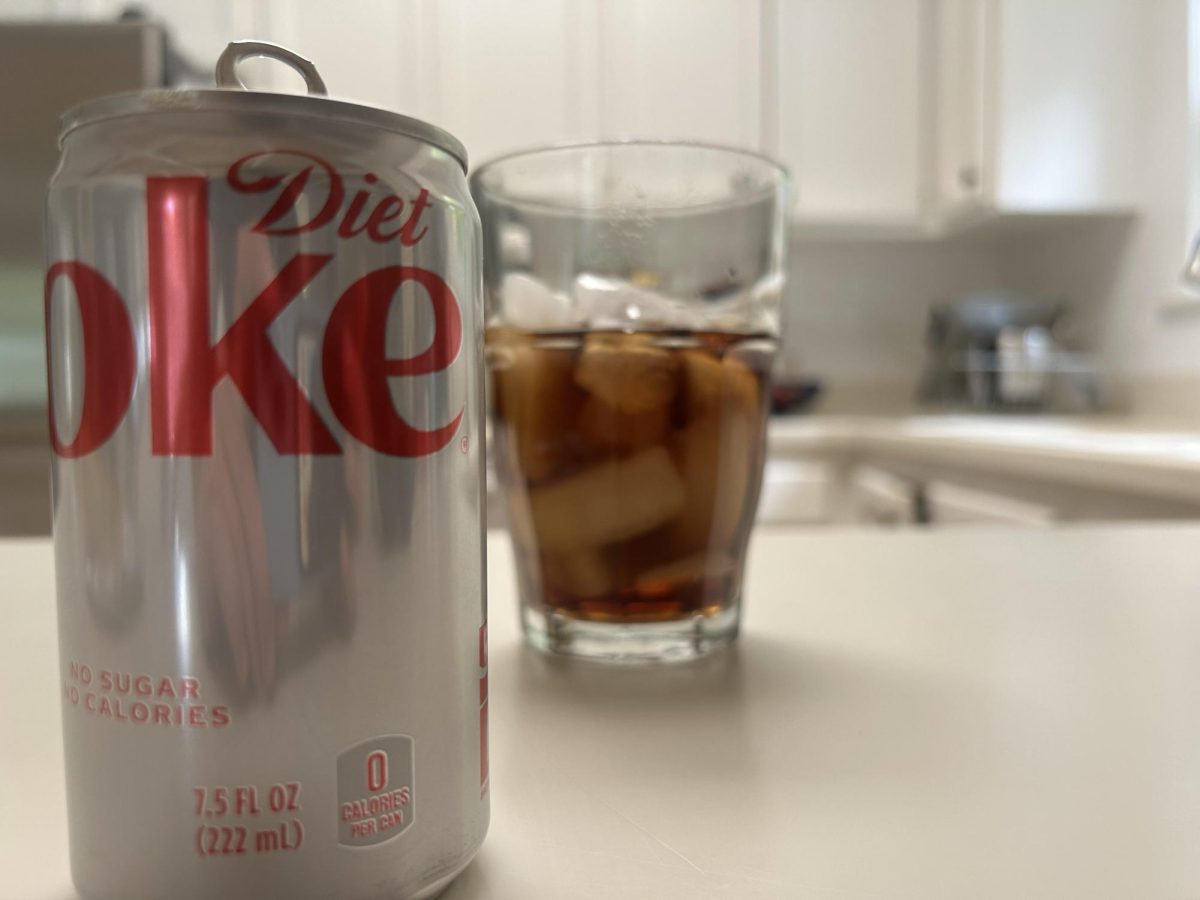One of the more significant controversies regarding soda brands such as Coca-Cola and Pepsi is the false advertising that diet soda is “healthy.” Coca-Cola is especially famous for its Diet Coke and Coke Zero. Most soda brands have followed Coca-Cola in emulating a recipe for zero-sugar and zero-calorie soda. The typical consensus is that diet soda is everything regular soda is but without sugar or calories. People trying to lose weight think they can still enjoy the taste of Coke without worrying about consuming the 200 calories and 40 grams of sugar contained in a standard 16-ounce can.
In a March Bark survey, 40 percent of students reported that they drink diet soda occasionally, and 19 percent drink it up to three times a week. Junior Cole Miller drinks diet soda, mainly Diet Coke. Miller is aware that many teenagers drink diet soda because of its perceived health benefits.
“I like to drink Coke Zero and Diet Coke. I can say most of my friends who are my age do too because they both have zero calories and still taste really good and nearly the same [as] normal Coke,” Miller said.
Many people are ignorant of diet soda’s health risks because there’s no sugar or calories. Junior Jackson Calahorro also drinks diet soda but has recently become aware of the potential impacts that it can have on someone who drinks it at an unhealthy amount.
“I drink diet soda, not necessarily because I think it’s healthy, but I think it’s a better alternative to normal soda as long as you drink it in moderation,” Calahorro said.

Diet soda is known to have alarming health effects. Side effects include potential weight gain, disrupted metabolism, increased blood pressure, diabetes, tooth erosion and decay and kidney and liver problems, among many more. According to the University of California Los Angeles (UCLA) Health, such specific cardiovascular effects have occurred to over 308,000 participants willing to be analyzed for research in Great Britain.
Local cardiologist Adam Baumgarten has had his share of experience working around soda and diet soda. Baumgarten states some health impacts that can be severe to people of all ages.
“Even as a kid or teenager, someone who exercises and who’s strong and fit can get away with a lot of the side effects early on when their metabolism is fast, but it sets a precedent for later in life. When you’re young, drinking soda can be a bad habit you develop for when you get older in your 50’s, 60’s, 70’s and so on,” Baumgarten said.
Side effects from drinking soda are not uncommon in the slightest. Results from a study from Medical News Today showed a 67 percent increase in the risk of type 2 diabetes in people who drank diet soda daily.
“Both regular and diet soda absolutely increase your risk of cardiovascular disease, which means risking heart disease, heart attacks, vascular strokes, cardiometabolic disorder, high blood pressure, high cholesterol, diabetes and therefore increases your risk of death,” Baumgarten said.
Diet sodas use ingredients such as aspartame to replace sugar. Aspartame is a low-calorie artificial sweetener that can be potentially cancerous and was banned in France in 2015.
It is essential to understand that drinking one diet soda won’t harm you unless you consume copious amounts. Everyone’s tolerance varies, and the health effects have drastically different implications for different people. Moderate consumption is usually okay for most people. People drinking more than a liter of diet soda daily should have more cause for concern. However, caution is advised to all consumers, especially those with any previous medical problems.
Beyond the physical health risks, diet and regular soda can be highly addictive. This can cause an unhealthy habit to form and lead to potential dangers. It is important to drink diet soda in moderation.
“I gave up soda decades ago just because I knew how bad it is for me. That doesn’t mean that my kids don’t have soda every so often. My son will go out and buy one now and then, even though he knows I don’t want him to, but they’re addictive. Those companies know exactly what they’re doing when advertising,” Baumgarten said.
Building healthier habits can help tremendously in the long run. While the short-term effects are hard to notice, excessive diet soda drinking over long periods of time can have serious consequences.
“It’s a matter of how much you drink. If you drink one or less a week, you’ll be fine,” Calahorro said.
Finding healthy alternatives to diet soda can help you develop better habits that will prevent you from facing the risks that drinking diet soda poses.
“A sweet-tooth alternative will never meet the same satisfaction as a soda, but a fizzy water with a twist of something natural like a lemon could be a good substitute for soda,” Baumgarten said.









